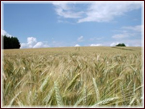Germany: Biofuels
 In the past decade, Germany has put policies in place to creae the most extensive biofuels market in Europe and the largest biodiesel production capacity worldwide.
In the past decade, Germany has put policies in place to creae the most extensive biofuels market in Europe and the largest biodiesel production capacity worldwide.
Drivers and Strategies Influencing the German (European) Biofuels Market, by Dr. Steffen Prusser, Trade Commissioner for Science and Technology at the Canadian Embassy in Germany, examines the reasons behind this rapid growth and the key players that have contributed to this success.
This summary also includes how biodiesel was marketed to both automobile manufacturers and consumers to gain widespread acceptance. Some of the more interesting innovations in the sector are also touched upon.
Even as the first generation of biofuel markets are nearing maturity in Germany, work is underway to develop the next generation. This will involve a transition from foodstuff-based fuels such as biodiesel from vegetable oils and bioethanol from cereals or corn to biofuels made from non-agricultural biomass. Not only are they more efficient in converting the sun’s energy to fuel, they are also ethically justifiable. The second generation biofuels include biomass to liquid fuels, bioethanol from cellulosic biomass (eg. straw) or biogas.
The development of the current biofuels market in Germany can be traced back to the creation of a stable investment climate. Commencing with the initial EU directive requiring that member nations achieved fixed biofuel quotas, Germany was able to set up a framework that gave the industry its first impulses. Through modifications of the original legislation, they were able to introduce measures to blended biofuels as well.
Also covered in the report are relevant EU and German regulations, German imports of Canadian products such as canola, and other aspects of the German biofuels industry.
Download, Drivers and Strategies Influencing the German (European) Biofuels Market (PDF).
You can return to the main Market News page, or press the Back button on your browser.

